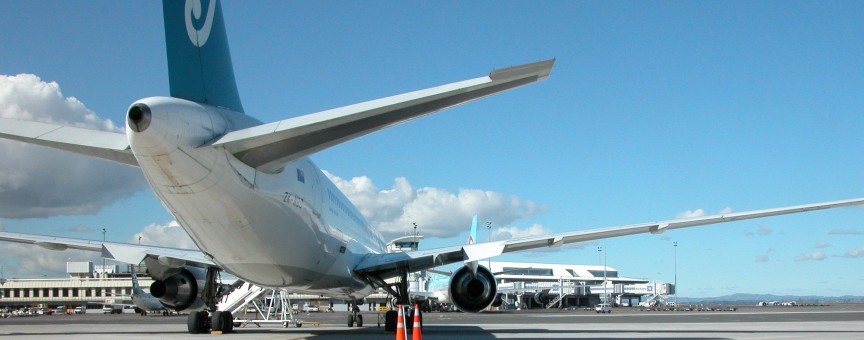Sustainability champion
Stuff (4 Feb 2018). Auckland Airport has taken another step towards committing to its reduction of carbon emissions by 2025 by becoming the first company in Oceania to use a science-based target for achieving its goal.
Auckland Airport's acting general manager Steven Crook said it would continue to work closely with its retailers and staff to minimise the impact its operations have on the environment.
"We acknowledge that the aviation industry contributes to climate change, and we've set ourselves an ambitious goal of reducing our airport emissions by 45% per square metre by 2025," Crook said.
Auckland Airport has measured and disclosed its carbon footprint through the CDP every year for the past decade.
The company's carbon footprint is audited externally each year, with the organisation achieving Carbon Emissions Management and Reduction Scheme (CEMARS) certification in the 2017 financial year for the fifth year in a row.
Enviro-Mark gave Auckland Airport the CEMARS certification, and its chief executive Ann Smith said more businesses were looking into getting accreditation.
"The best way to improve brand and reputation is to undertake an assessment of its operations and identify impacts including consulting stakeholders so they understand how they are perceived. Next is to be transparent about its impacts," Smith said.
"Over recent years, the population has become more educated about sustainability impacts and come to value products and services that genuinely care about environmental and social issues. This is now reflected in Gen Zero and coming generations."
She said businesses looking to become more sustainable had also been led by the public sector. The new Government is proposing a Zero Carbon Act and the NZ Super Fund is aiming to decarbonise its investment portfolio.
Smith said third-party certification against a reputable standard provided assurance that the claims being made by a company were robust and could be trusted.
"It is not a rubber stamp. In fact, our certified companies want us to visit and challenge them. They want the certification to be hard to achieve so that it has value in terms of helping to improve their systems and enhance their brand," she said.
In the 2017 financial year, Auckland Airport reduced carbon emissions by 11% on the previous year.
Initiatives contributing to this fall included installing more efficient heating and cooling technology in its international terminal, minimising waste going to landfill, and increasing its low-emissions vehicle fleet.
Read more about Auckland Airport's work to manage energy and carbon.





